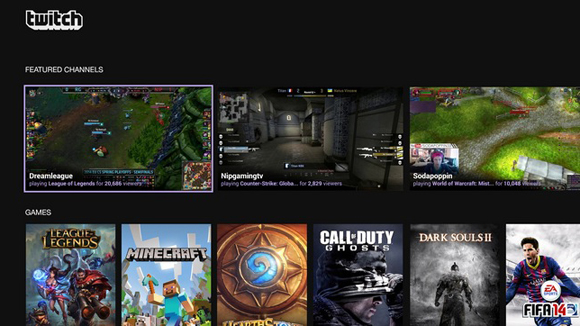Amazon buys Twitch: why this is bad news for gamers
Get big, get bought

Here we go again. Another young, exciting company is being gobbled up by a bigger fish with a flashy amount of cash.
We've already been through this song and dance what feels like an inordinate amount of times this past year, but Amazon buying Twitch is particularly worrisome to me and a move I feel doesn't bode well for Twitch or its users.
There's always been something counterculture and subversive about Twitch that's led me to cheer for it. Kind of an underdog vibe that persisted despite its immense popularity, and it's probably that vibe that drew in a fair number of its 55 million unique visitors last month.
I appreciate how quickly Twitch grew, its upward trajectory in a short three years from Justin.tv spin-off to the fourth largest source of prime time internet traffic in the US. I appreciate the fact that it filled a niche that was, in hindsight, so sorely needed.
The price of success
Twitch has had growing pains, to be sure; it's recent decision to mute licensed music in older games was unpopular in its own right, not to mention CEO Emmett Shear's not-universally loved Reddit AMA to address the situation.
Perhaps this is one of the reasons Twitch decided it needed Amazon's practiced and well-funded hand to get it to the next level. Amazon launched online in 1995, almost 20 years ago. It's weathered plenty of storms and suffered through its own aches. Twitch could stand to gain from this experience, not to mention the bucko bucks in Amazon's rainy day fund.
Don't get me wrong - I understand why a $970 million (about £585m, AU$1.04b) payday and the tutelage/resources/sheer power of Amazon tempted Twitch. It was poised to become Google's not long ago for more money until those talks reportedly fell apart.
Sign up for breaking news, reviews, opinion, top tech deals, and more.
That still doesn't cut through the disappointment I feel for Twitch or its users who are likely in for some unwelcome changes.
The company will remain independent and Amazon has voiced its commitment to helping Twitch "build new services for the gaming community" more quickly. For its part, Twitch told TechRadar that the sale to Amazon will "enable us to accelerate all of the things we want to do for our community."
More services are great, as is faster delivery. But let's read between the lines.
Selling out
"New services for the gaming community" is an interesting, carefully crafted bit of wording because Amazon doesn't necessarily mean more gaming services. It could mean anything, from a marketplace to app store to music service, that's geared toward people who use Twitch.
None of that in its own right bad, but it opens the door for a lot more ads, a lot more user information going to Amazon and perhaps even an adulteration of the very things that make Twitch wonderful for so many people.
Another area of concern is Amazon's bread and butter: selling stuff. The company couldn't make a smartphone without including a deep tie-in to its e-commerce business.
It's not out of the realm of possibility for Amazon to, one day, start inserting direct links on Twitch to buy things on Amazon.com. It will already know exactly what kind of games you play and like to watch, who you interact with and when you're online anyway, right?
Twitch isn't doing anything that countless companies haven't done before it, and again I can't fault it for going for the big payday and the big company that can help it realize more than it may have been able to on its own. Who knows how much longer Twitch could have kept growing if it continued to fly solo.
But maybe I just can't let go of the fantasy of a smaller company making it on its own in the Wild West of the tech world, sticking it out and one day turning into a titan in its own right.
I worry that we'll never have another Apple, Microsoft, Google, Facebook or Amazon if these smaller firms keep selling themselves out. It's a tough world out there, but someone's got to make it. Those guys sure did.
- On the flip-side, Lily Prasuethsut thinks Amazon buying Twitch is great news

Cameron is a writer at The Verge, focused on reviews, deals coverage, and news. He wrote for magazines and websites such as The Verge, TechRadar, Practical Photoshop, Polygon, Eater and Al Bawaba.